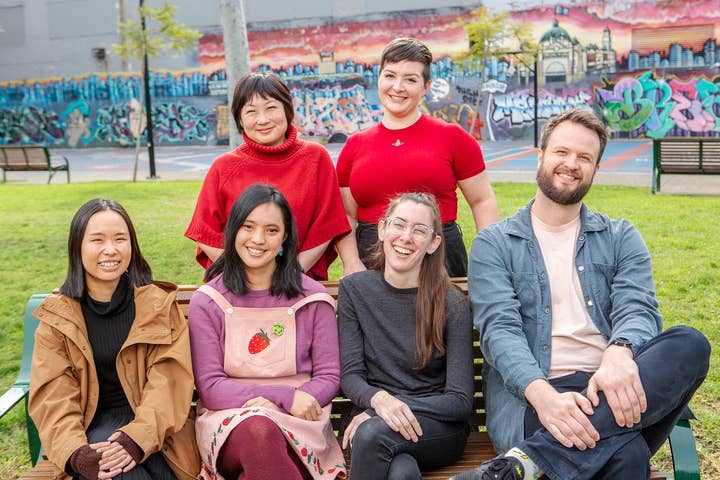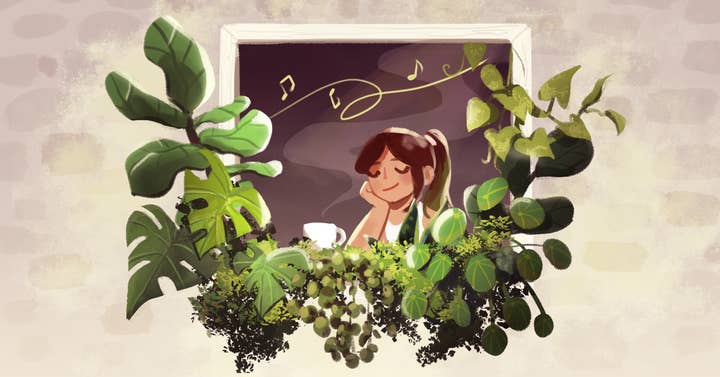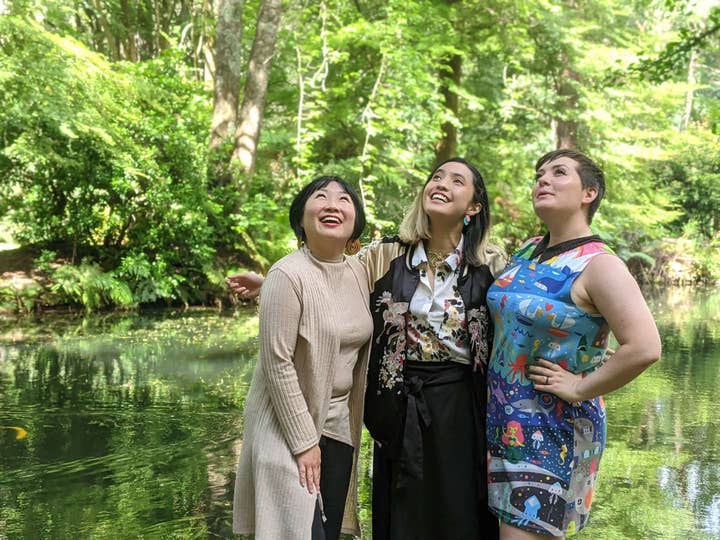Lumi Interactive CEO on making the world (and games) a kinder place
Lauren Clinnick discusses the studio's origin, its debut plant management game, and improving the industry for everyone
In an industry (and a world) that prioritises speed, trends and the next best thing, mobile startup Lumi Interactive wants to give its audience a space to slow down.
Bolstered by a recent $6.75 million investment led by Andreessen Horowitz, the Australian studio is poised to build out its team and deliver a full launch of its debut mobile game later this year.
Lumi's ethos is a simple one, according to the studio's CEO and co-founder Lauren Clinnick. It wants to make the world a kinder place.
"Our vision comes from our desire to focus on underrepresented consumers, women and non-binary folks in particular," Clinnick tells GamesIndustry.biz. "It also comes from our drive to create experiences that deliver mental wellbeing benefits for our community."
Clinnick's own background is in marketing, and she has worked on promotional campaigns "from fancy fruit juices to to encryption hardware." In 2014, she co-founded a games marketing agency, Lumi Consulting, before moving into development in 2018 by co-founding Lumi Interactive with Christina Chen, now chief product officer.
The pair initially crossed paths almost a decade ago at The Arcade, an industry co-working space in Melbourne, and bonded over a mutual interest in how free-to-play was changing the mobile market.
Chen has a technical background, previously working in supercomputing at Microsoft before moving to work on the payment systems behind Xbox Live, and later as a senior producer at the Shanghai branch of EA-owned PopCap Games. Chen is also a co-founder of games publisher Surprise Attack, which went on to become Fellow Traveller.
In 2022, Lumi Interactive is a team of 11 working towards a full release of Kinder World, the studio's upcoming self-care mobile game -- a concept that initially surfaced during the height of the COVID-19 pandemic.
"In late 2020 we were a small team of three, exhausted by the pandemic and a hard year for the business," Clinnick tells us. "We decided to take a few weeks to refresh ourselves with a game jam to make something totally new, and mental wellbeing was very much on our minds. We all became closer to nature over the harsh Melbourne lockdowns, and wanted to examine why houseplants had become part of a self care routine for so many people we knew."

Kinder Worlds focuses on growing and taking care of plants, but the tools to nurture your greenery come from being kind to yourself. Players must complete acts of self care and log it in-game in order to see growth, and the plants that appear are procedurally generated, which means every player's game is as unique as their own journey.
"We believe in spending your precious life doing something to make the world a better place, and we've never worked on a product that felt so nourishing to make"
"We have an approach to game development that examines strong new trends or subcultures, and try to look behind to understand what emotional need, or personal expression is coming from that new subculture," Clinnick adds.
"How could houseplant care be brought into a digital space, and still offer some respite for a tired mind? This was our goal in prototyping Kinder World. It had a spark of something special after just a few weeks, and the concept tested very strongly with our target audience straight away. We also believe in spending your precious life doing something to make the world a better place, and we've never worked on a product that felt so nourishing to make."
Clinnick thinks that apps or games designed to support wellbeing can feel like solo experiences, which is why Lumi wants to create a sense of connection with Kinder World, without it becoming a social network or a competitive space.
"Plant communities are amazingly warm and generous with each other, and so many of our players love to grow cuttings as gifts for friends in real life, so we've always looked for ways to integrate mechanics that give that kind of warm, benevolent feeling," she says. "We're very inspired by these moments in games, when players are happy to help each other or give gifts, even to a stranger they don't know. That's when humanity is at its best, so we want to cultivate that."

While the world has started to heal from the pandemic and its numerous lockdowns, COVID is still very much with us, and Clinnick echoes a sense of exhaustion that hasn't quite left yet.
"Globally we're tired, drained and anxious," she says. "Mental wellbeing is increasingly important to many of us, and as game developers, we've seen the power of 'co-development' with your most engaged players."
There's always the thorny question of revenue with mobile titles, and Kinder Worlds looks to be the antithesis of some of the more exploitative titles on the market currently. The game is also looking at an in-app purchases strategy in the form of optional decorative items, but it doesn't want to lure its players into consistent and unnecessary spending.
"It's important to us that access to the core self-kindness activities are not monetised and are accessible by all players," Clinnick tells us. "We also don't have ad monetisation in this version of Kinder World to interrupt the player experience."
It's important to us that access to the core self-kindness activities are not monetised and are accessible by all players"
Clinnick says that Kinder World wants to avoid 'Animal Crossing guilt' -- Nintendo's long-running management series sees its players jovially scolded by the game's characters if they don't log in for a long period of time, and their towns will become overrun with weeds.
"There's no 'daily reward' chains, and plants also won't die if players need to take a bit of a break and come back later -- preventing player 'guilt' was important to us," Clinnick adds.
Kinder World has been in early access on Android and iOS for a while, and consistent feedback has enabled Lumi to develop the game in line with what their players want. The early testing also contributed to securing investment, alongside other early decisions. Clinnick launched a Kickstarter for Kinder World in February 2021, raising AU $88,950 (approximately $60,000 dollars), a figure well over the AU $25,000 goal set by the campaign.
"Knowing that we'd likely need to look overseas for an ambitious seed raise, we prepared by building traction and validation through early marketability testing, a successful crowdfunding campaign, and viral growth on our TikTok -- all as a team of three women who were also developing Kinder World at the same time."
Clinnick adds that Australia has a passionate and talented game development scene, but local VC investors don't have a "sophisticated understanding of the commercial and impact potential for games."
"Fellow Australians Galileo Ventures were our first believers at an investment level, and we're forever grateful for the support VicScreen has shown us over the years," Clinnick says, "But we had to look overseas for a significant lead investor for our seed round."
Testing the marketability of Kinder World during its concept stages was a core element of Lumi Interactive's fundraising success, and Clinnick encourages indie studios in similar positions to trial an idea early before heavily committing to a vertical slice, which acts as a proof of concept for potential investors.
"Who is it for? What emotional rewards does it offer players, and can your concept assets communicate those rewards?" Clinnick says. "Recruiting early adopter players will lead to a better product-market fit, and they are a joy to learn from."

